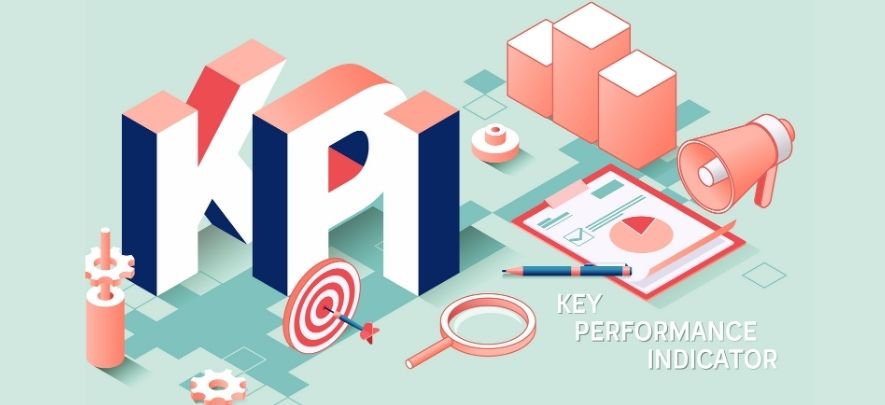Evaluating success: KPIs in digital marketing

Marketing
247 week ago — 6 min read
A positive response is the goal of every digital marketing campaign. While the goal of digital marketing is to increase profits, not every campaign directly leads to monetary benefits. It’s not enough to just create a marketing plan, send it out, and hope for results. The most successful marketing campaigns are those that track essential digital marketing metrics and use them to engage in constant refinement and improvement.
Online marketing performance is evaluated by key performance indicators (KPIs). However, not every KPI is valuable. With many to pick from, it's most recommended to concentrate on the KPIs that and closely influence the results of your company. For example, for an SEO program, you will need to measure Google traffic growth and search engine ranking positions.
The metrics that genuinely matter are the ones precisely tied to your company's goals and objectives. These numbers report a strength or weakness you can grow upon or address to push your organisation closer to its goals. In contrast to good-looking measurement, meaningful metrics give actionable ideas the details you require to align your marketing techniques in real-time and subsequently flourish as a business.
The only KPIs truly worth having are the ones with meaning. Here are a variety of KPIs to emphasise:
1. Bounce rates
This statistic can explain to you whether users are substantively connecting with your web content or merely passing by. It works with the percentage of site visitors who arrive and later leave rather before exploring other web pages. A high bounce rate (over 60%) is one of the most common conversion killers. Delivering constant, customer-centric content using optimised images, interactive videos and clear calls to action can help improve this metric.
2. Landing page conversion rates
Whether or not your site has one landing page or dozens, you need to know how well each is functioning. Your landing page conversion rate is the percentage of visitors who take the desired action regardless if that's downloading a book, signing up or arranging a demo. To strengthen your conversion rates, make sure the user experience on these pages is simple, the call to action (CTA) is obvious and what you're delivering is convincing.
Also read: 6 tips to improve conversion rate for your online store
3. Organic search growth
It concerns the boost or decrease of traffic from search engines like Google. As reported by Terence Lim, SEO Specialist at JinMatic SEO firm, this data is fundamental for any SEO professional in measuring Search engine optimisation campaign performance. Because SEO is a lengthy internet marketing strategy, Terence suggests SEO specialists look into at least a duration of 6 months when checking out organic search growth.
4. Click-through rates
More informing than an e-mail open rate, click-through rates determine the number of receivers clicked a CTA button or other link in an email. This is generally an e-mail's total variety of clicks divided by its total variety of opens. Benchmarks can differ depending on your industry but much more accorded to whether you are sending out emails to clients or potential customers.
5. Search Engine Ranking Positions
This standard KPI for an SEO project. Also referred to as keyword rankings or Search Engine Results Pages, it allows SEO practitioners to instantly track their SEO results. Despite the fact that it is no longer as important as in the past, keyword ranking positions help SEO professionals to know if they are in the right position.
Also read: 5 easy steps to increase your blog or website rank
6. Return on investment (ROI)
Lastly, ROI is your bottom line when it pertains to assessing a marketing effort. Everything needs to come back to what the actual return is for the hours and dollars you put into it. Nevertheless, effective a project may seem according to any other step, it needs to be responsible for the revenue it is accountable for generating through efficient conversions.
Converting leads isn't an exact science - however, make no mistake, it is a science. These days, you can effectively track and assess your KPI with analytical tools like Google Search Console and Google Analytics. we all want our SEO campaigns to be successful, to be efficient and to have a high return. The way to make sure that they do it is to ensure that we are valuing the proper statistics of success.
Also read: 3 Digital Mediums You Should Prioritise to Boost Your Sales
To explore business opportunities, link with me by clicking on the 'Connect' button on my eBiz Card.
Image source: shutterstock.com
Disclaimer: The views and opinions expressed in this article are those of the author and do not necessarily reflect the views, official policy or position of GlobalLinker.
View Eng Jin 's profile
Most read this week









Comments
Share this content
Please login or Register to join the discussion